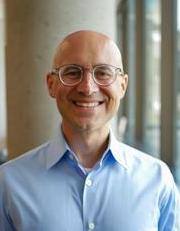
REALIZE Research Experiences for American Leadership of Industry with Zero Emissions
You can make a difference this summer by working toward reducing industrial emissions to zero.
REALIZE at the University of Cincinnati (UC) is a 10-week interdisciplinary research training program funded by NSF, aiming to accelerate technology innovations for advancing energy generation, transmission, storage, and efficient utilization.
REALIZE (Research Experiences for American Leadership of Industry with Zero Emissions) is led by 10 faculty mentors from five departments and two colleges. Ten undergraduate students each summer will engage in cutting-edge research on:
- Energy efficiency
- Industrial electrification
- Energy storage
- Alternative fuels
- Advanced energy generation
- Carbon capture/utilization
Through hands-on experience in UC's advanced research facilities, participants will address fundamental challenges in energy generation, manufacturing, infrastructure, and transportation, gaining a comprehensive understanding of rapidly changing energy demands.
Emphasizing convergent research approaches, students will explore multiple aspects of advanced energy technologies, evaluate their feasibility and impacts, and share their findings through podcasts to increase public awareness of scientific contributions to energy-related research efforts. Leveraging UC's proximity to U.S. manufacturing hubs, the program aims to deepen students' understanding of industrial energy needs through innovative manufacturing initiatives.
2026 Program Features
- You will receive a stipend of $700 per week.
- Housing is provided (up to $3000 value).
- You will receive travel reimbursement up to $500.
- Summer experiences will include trips to museums, seminars on professional development, and research training.
- You will learn how to make a podcast to report your results.
Important Dates
- Application deadline: March 6, 2026
- Notification of acceptance: March 20, 2026
- Program date: May 18 - July 24, 2026
Eligibility Requirements
To apply for this REU site, an applicant must meet the following criteria
- U.S. citizen or Permanent Resident;
- An undergraduate student at the time of the REU participation;
- Major in Mechanical Engineering, Materials Science, Chemical Engineering, Architectural Engineering, Chemistry, Physics, Biology, or related fields;
- GPA of 3.3 or higher;
- At least 18 years of age by the start of the program.
Applications are highly encouraged from students of all backgrounds, including those attending academic institutions with limited STEM research opportunities and those from groups often underrepresented in engineering.
Contact

| Name | Position/Discipline | Theme |
| Eric Payton | Assoc. Prof./Materials Sci. & Eng. (MSE) | Low-carbon fuels |
| David Reeping | Assi. Prof./Engineering Education | Program evaluation |
| Kishan Bellur | Assi. Prof./Mechanical Eng. (ME) | Low-carbon fuels |
| Junhang Dong | Prof./Chemical Eng. (ChE) | Low-carbon fuels |
| Milind Jog | Prof./Mechanical Eng. (ME) | Energy efficiency |
| Matt Steiner | Assi. Prof./Materials Sci & Eng. (MSE) | Electrification |
| Sarah Watzman | Assi. Prof./Mechanical Eng. (ME) | Renewable Energy |
| Amanda Webb | Assi. Prof./Architectural Eng. (AE) | Energy efficiency |
| Jingjie Wu | Assoc. Prof./Chemical Eng. (ChE) | Carbon utilization |